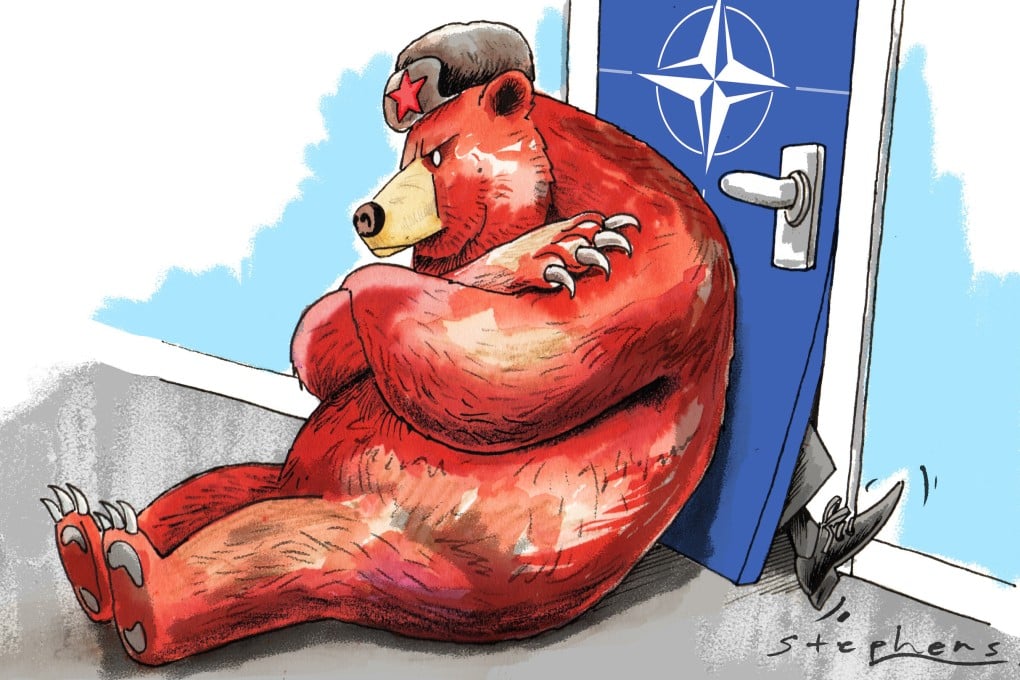Advertisement
Opinion | Why a military offensive against Ukraine was always Russia’s Plan B
- To stop Nato’s eastward expansion, Putin has been prepared to risk international condemnation and possible domestic repercussions
- His rationale of the need to protect the country’s security also has the support of a sizeable number of the Russian people
Reading Time:4 minutes
Why you can trust SCMP
17

February 25 is likely to usher in a change in the post-1945 world order, with national security being prioritised over sovereign rights and non-interference. Despite earlier reassurances of non-aggression, Moscow launched an offensive against Ukraine, citing domestic security concerns.
Advertisement
The move was lambasted internationally with the Group of 7 calling it an “unprovoked and completely unjustified attack” and the European Union concerned about “the darkest hours” since World War II. There will be broader implications for Euro-Atlantic security and the global order will be more unbalanced, emboldening states to pursue coercion.
But there is nothing sudden about Russia’s move. Earlier in the week, I tweeted that “Russia will have to intervene militarily sooner or later”, following its recognition of the independence of Donetsk and Luhansk in eastern Ukraine, which effectively dismantled any diplomatic off-ramps for Ukraine to peacefully withdraw.
Prior to that, the Russian parliament voted to ask President Vladimir Putin to recognise the regions. It was followed by the two regions’ announcements of mass evacuations of civilians.
The view that Putin is acting on his strongman ambitions or, as US President Joe Biden put it, to recreate the Soviet empire, seems too simplistic. Neither an ego trip nor imperial ambitions could be a convincing explanation for such a risky endeavour that could have serious domestic and international repercussions.
History teaches that regimes fall out of favour with citizens when they fail to maintain peace. The Soviet campaign in Afghanistan and the American war in Vietnam are just a few examples. Putin would have had a stronger inducement than mere narcissism.
Advertisement
John Mearsheimer wrote in 2014 that the Ukraine crisis is the West’s fault originating from its “misbegotten policy” of turning Ukraine into a Western stronghold, while Jeffrey Sachs has called “American intransigence” on Nato enlargement “misguided and risky”. In each of his three televised addresses so far, Putin has stressed that Moscow would not tolerate Nato’s eastward enlargement, threatening Russia and subsequently his own rule, deemed autocratic in the West.
In retrospect, it seems clear that the military option was always Plan B. Russia’s “red line” was Ukraine joining Nato, which Putin said would allow a missile to reach Russia in as little as five minutes. In fact, this is already possible from Estonia.

Advertisement
